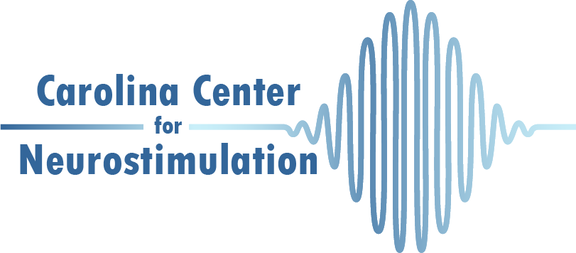Frequently Asked Questions (FAQ)
What is non-invasive brain stimulation?
Non-invasive brain stimulation applies a weak electric current to the scalp. This subtly changes brain activity and may help improve mood and treat depression. There are different types of non-invasive brain stimulation with different sizes of electrodes and types of electric current to target different aspects of brain function. Some patients feel nothing, some patients report a mild tingling sensation during stimulation. Both is normal and does not predict how well the stimulation works.
Will stimulation interfere with my daily activities?
The instructions pertaining to what can be done during stimulation depend on the specific study. For some studies, you receive the stimulation in one of our comfortable treatment rooms where you are asked to watch a relaxing movie. For other studies, stimulation can be performed at home and you can continue to do light activities during stimulation. If you are interested in at-home stimulation, we recommend you contact us about the MOOD study.
Will non-invasive brain stimulation hurt?
Typically, there is no pain involved for the types of non-invasive stimulation used in our clinical trials. Some people report a tingling sensation, mild headaches, unpleasant sensations, and related sensory experiences during treatment. We encourage you to ask our study personnel about the specifics for the study you are interested in.
Why participate in a clinical study?
Clinical studies are designed to understand if the use of a treatment improves symptoms (often better than an inert, "placebo" or "sham" condition) and how. We find that people often participate in clinical trials because they have tried FDA-approved treatments and are looking forward to trying something new and different. Also, many participants in our trials express how important it is to them to help better understand their condition and contribute to the discovery of new treatments. Finally, people sometimes opt to participate in clinical trials since they are on a long wait list for the next treatment.
Do I need to pay to participate in a clinical study at your center?
No. Study visits are free. In fact, there is typically a reimbursement for the time and effort by the participant. Costs of ongoing medical care outside the study remain the patient's responsibility.
Does your center study "shock therapy"?
No. Electroconvulsive therapy (ECT) is a treatment option for certain, particularly severe forms of depression. Our center does NOT study ECT and the amount of electricity used in our studies is about thousand-fold weaker than in ECT.
Disclaimer: Please note that the web is not the place where medical advice can be provided. All the information provided should not be misunderstood as medical advice.
Non-invasive brain stimulation applies a weak electric current to the scalp. This subtly changes brain activity and may help improve mood and treat depression. There are different types of non-invasive brain stimulation with different sizes of electrodes and types of electric current to target different aspects of brain function. Some patients feel nothing, some patients report a mild tingling sensation during stimulation. Both is normal and does not predict how well the stimulation works.
Will stimulation interfere with my daily activities?
The instructions pertaining to what can be done during stimulation depend on the specific study. For some studies, you receive the stimulation in one of our comfortable treatment rooms where you are asked to watch a relaxing movie. For other studies, stimulation can be performed at home and you can continue to do light activities during stimulation. If you are interested in at-home stimulation, we recommend you contact us about the MOOD study.
Will non-invasive brain stimulation hurt?
Typically, there is no pain involved for the types of non-invasive stimulation used in our clinical trials. Some people report a tingling sensation, mild headaches, unpleasant sensations, and related sensory experiences during treatment. We encourage you to ask our study personnel about the specifics for the study you are interested in.
Why participate in a clinical study?
Clinical studies are designed to understand if the use of a treatment improves symptoms (often better than an inert, "placebo" or "sham" condition) and how. We find that people often participate in clinical trials because they have tried FDA-approved treatments and are looking forward to trying something new and different. Also, many participants in our trials express how important it is to them to help better understand their condition and contribute to the discovery of new treatments. Finally, people sometimes opt to participate in clinical trials since they are on a long wait list for the next treatment.
Do I need to pay to participate in a clinical study at your center?
No. Study visits are free. In fact, there is typically a reimbursement for the time and effort by the participant. Costs of ongoing medical care outside the study remain the patient's responsibility.
Does your center study "shock therapy"?
No. Electroconvulsive therapy (ECT) is a treatment option for certain, particularly severe forms of depression. Our center does NOT study ECT and the amount of electricity used in our studies is about thousand-fold weaker than in ECT.
Disclaimer: Please note that the web is not the place where medical advice can be provided. All the information provided should not be misunderstood as medical advice.
